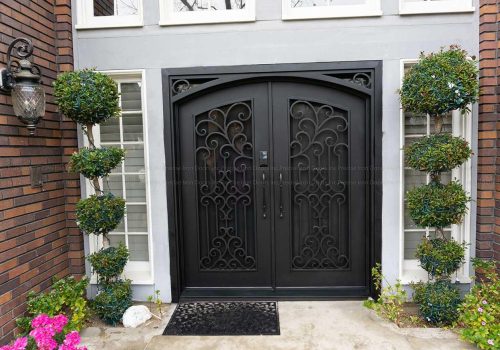What Are The Characteristics, Advantages And Disadvantages Of Vinyl Floors?
After a few forgotten years, vinyl floors are experiencing a new resurgence. The reason is not so much fashion but the overcoming of many of the drawbacks that this type of material had.
Advantages of vinyl floor
Its current advantages include ultraviolet filters that significantly lengthen the duration of the drawings, better behaviour against heat and fire, better resistance to friction or abrasion, etc. Hence, they have become commonplace not only in homes but also in shops, offices, hospitals and other high-traffic areas.
Vinyl floors are mainly made of PVC (Polyvinyl Chloride). It is a resistant and durable material. But this is not the only material used. Each manufacturer adds different components and layers depending on their wants: excellent stability, non-combustibility, non-slip properties, etc.
Characteristics of Vinyl Floors
Vinyl floors have many advantages; some of them solve problems of alternative products. Hence, favourable opinions arise, and its demand does not stop growing.
Wide variety of designs, textures and formats. It is an entirely industrial product, with no limitations in this regard. They can be found in wood designs, the most common through hydraulic tiles, natural stones and even exclusive designs.
- Quick and easy installation. Especially in plank or tile format, the building will be quick and easy, suitable for a DIY enthusiast. The necessary work will be minimal or may not exist since it is installed on the existing floor. In the roll format, the task becomes somewhat more complex, and it is recommended that it be carried out by professionals.
- Dimensional stability. It is a very stable floor covering, especially if we compare it with substitute products such as laminate flooring. It is unnecessary to leave an expansion joint in floating installations unless we do not find them in large buildings.
- Excellent resistance to wear or abrasion.
- 100% moisture resistant. This is the main advantage of vinyl flooring over laminate flooring. Being a plastic product, they are entirely immune to the action of water, which is why they are also suitable for kitchen and bathroom floors. Not for exteriors, where solar radiation will end up affecting its colour.
- Silent tread.
- Simple and reduced cleaning and maintenance.
- Antibacterial.
- Antistatic properties.
- Great durability. Today, most quality vinyl flooring brands offer up to a 30-year warranty for domestic use.
- Silent tread. This characteristic makes them ideal for the hotel sector. Hence the great demand, especially for renovations.
Are they compatible with underfloor heating?
Underfloor heating systems are increasingly used. They are a practical and efficient solution. However, they are not always compatible with all flooring and installation methods.
In the case of PVC floors, some manufacturers have considered this option and have taken it into account during the development and production processes. So:
- There is no standard in the industry, and not all vinyl is designed for it.
- We must accept a slight loss of system efficiency in cases where the floor is suitable for radiant heating.
- The heating installation must meet the requirements of vinyl flooring:
- The separation between heating components.
- Maximum and minimum temperatures.
- We must pay attention to the installation conditions of both vinyl flooring:
- Temperatures before, during and after installation.
- Degree of humidity.
- Expansion joints and transitions.
Disadvantages of Vinyl Flooring
PVC floors also have drawbacks:
- Direct solar radiation affects the design and accelerates its fading. It has been dramatically improved in this regard, and in typical situations, the effect is minimal. However, if the exposure is continuous, we will see a deterioration.
- Telegraphing: This is one of the most common problems in vinyl floors, especially in small thicknesses. It means that with time and use, even the slightest irregularity that the subfloor could have will be noticed and reflected on the surface.
- Some of the components used for its manufacture are environmentally friendly, such as oil.
- It is, therefore, not an ecological product, nor is it easy to recycle.
- There is no possibility of carrying out repairs. Once the wear is noticeable, it should be replaced. Nowadays, it is not something that will happen quickly; several years of quite intense use will be necessary.
- Sharp objects, such as a falling knife, can leave marks.
- Coming into contact with hot objects can also damage the floor.
- Wheelchairs can cause separations of slats or tiles in floating installations. This problem is not exclusive to vinyl but also laminates or even wood. The problem disappears if we fix the vinyl to the pavement.
- A problem with vinyl floors that often goes unnoticed is that installations under heavy furniture such as cabinets are not recommended. The floor will be marked in a short time. Do not drag furniture on this type of flooring either. If you need to move heavy things, you can use a blanket.


